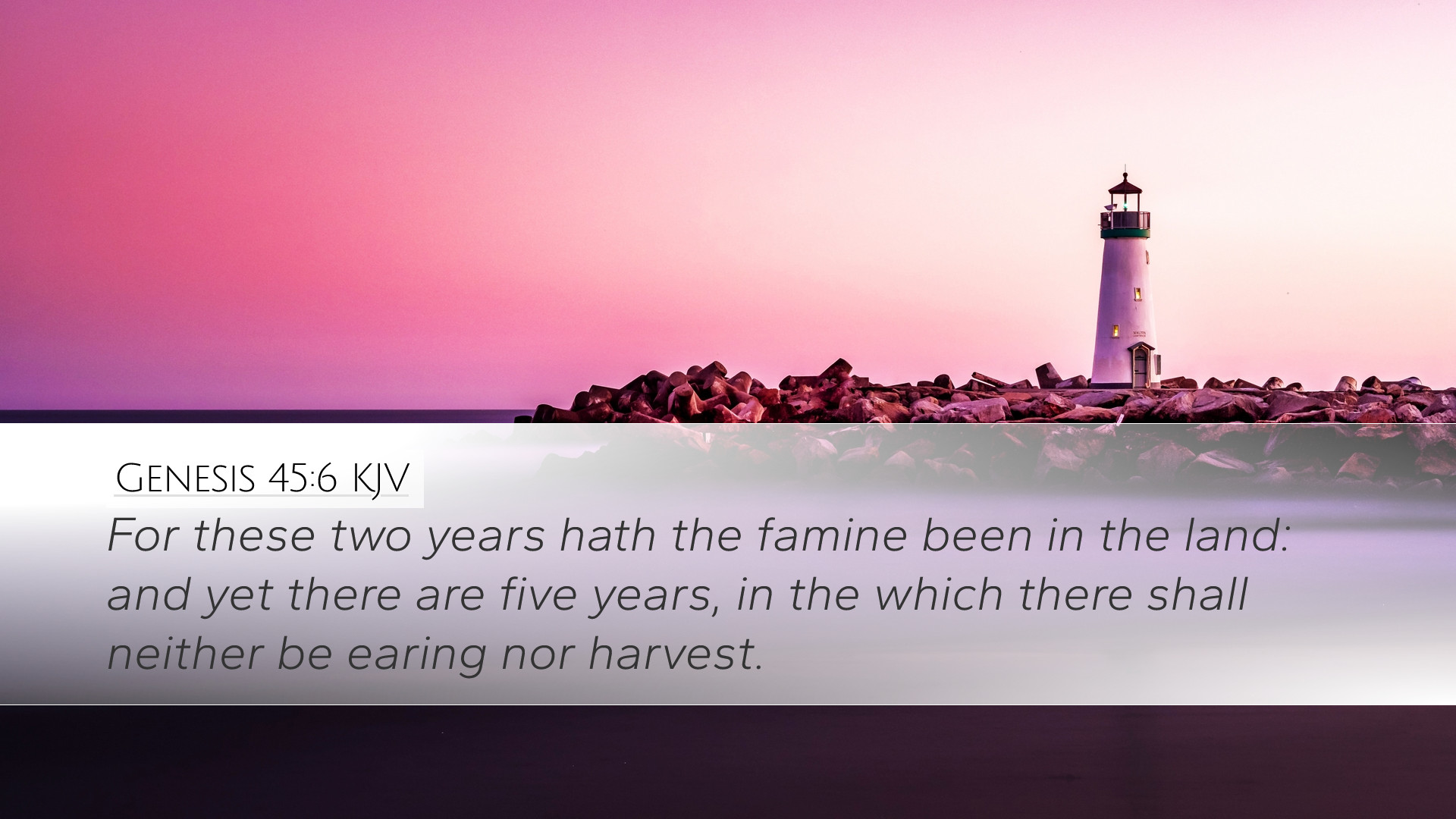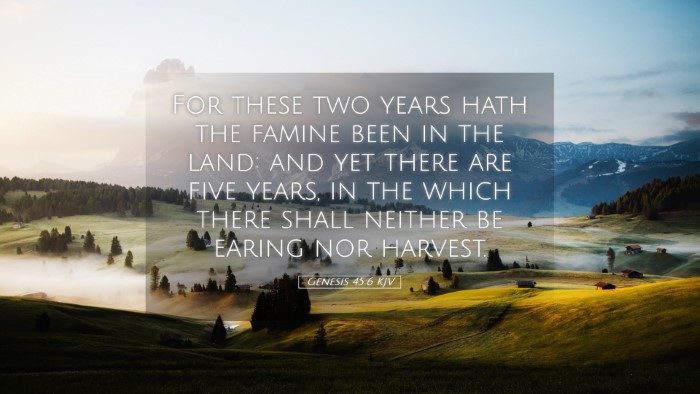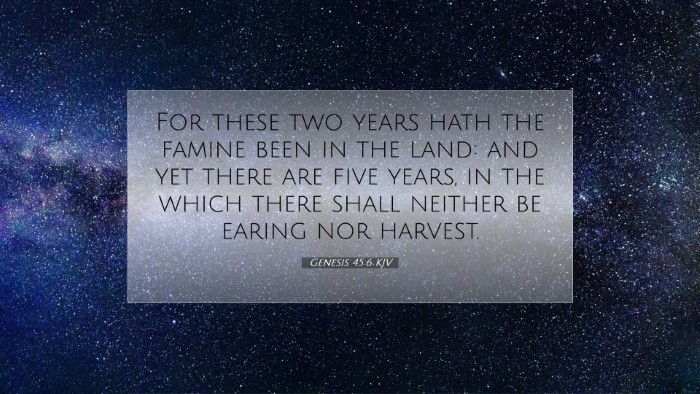Commentary on Genesis 45:6
Verse Reference: Genesis 45:6 - "For these two years hath the famine been in the land: and yet there are five years, in the which there shall neither be earing nor harvest."
Introduction
This pivotal moment in Genesis marks the culmination of Joseph’s story and his reconciliation with his brothers. As Joseph reveals his identity, he provides profound insight into divine providence and the unfolding plan of God through trials and tribulations. With contributions from public domain commentators like Matthew Henry, Albert Barnes, and Adam Clarke, we delve into the multi-faceted implications of this verse.
Context and Background
Joseph, sold into slavery by his brothers, rises to power in Egypt, ultimately encountering his family during a severe famine. His statement about the ongoing famine not only reflects his position as a leader in Egypt but also reveals his deep understanding of God’s plans for Israel and the world.
Matthew Henry's Commentary
Henry emphasizes the significance of Joseph's foresight regarding the famine. He notes that God often prepares His servants for future challenges and uses their experiences for His greater purposes. Joseph's revealing of the famine serves as a sober reminder of God's discipline and provision:
- Divine Providence: Joseph recognizes God's hand in his adversity, culminating in his elevation and the saving of his family.
- Preparation for Hardship: The specifics of the famine illustrate the careful planning and foresight required in leadership and provision during crises.
- Spiritual Reflection: Joseph’s statement prompts introspection about reliance on God amidst the uncertainties of life.
Albert Barnes' Notes
Barnes provides an analysis of the historical and agricultural implications of the famine. He states that Joseph’s management in Egypt not only saved the nation but allowed for the preservation of the covenant people. He highlights three critical insights:
- Duration of the Famine: The specificity of timing underscores God's control over nature and events, reminding believers of His sovereignty.
- Joseph's Role: In recognizing both the immediacy and length of the famine, Joseph exemplifies wisdom that balances immediate needs with long-term planning.
- Covenant Preservation: The famine becomes a backdrop for God’s covenant with Abraham, Isaac, and Jacob, showing that even in despair, God’s promises endure.
Adam Clarke's Commentary
Clarke emphasizes the personal dimensions of Joseph's account, focusing on the emotional and relational aspects of his interactions with his brothers. His key contributions include:
- Joseph's Compassion: Despite his position, Joseph's concern for his family amidst the famine showcases a heart aligned with God's mercy.
- Historical Typology: Joseph serves as a type of Christ, whose suffering ultimately leads to salvation for many — a theme echoing throughout scripture.
- Hope and Redemption: The mention of five more years without harvest presents a dire situation yet emphasizes hope through God's plans beyond immediate despair.
Theological Insights
This verse serves as a microcosm of broader theological themes found in the entirety of Scripture:
- The Sovereignty of God: God's hand is evident in both the prosperity and suffering faced by His people.
- The Role of Suffering: It engages believers in a deeper understanding of God's character, revealing that suffering can be a form of divine preparation.
- The Nature of Forgiveness: Joseph’s actions model Christ-like forgiveness and reconciliation, central tenets of the Christian faith.
Practical Applications
For pastors, students, and theologians, the insights gleaned from Genesis 45:6 can be applied in several practical ways:
- Preparation in Leadership: Leaders should be equipped to navigate crises, always looking to God for wisdom and discernment.
- Emphasis on Community: The importance of familial and communal bonds is highlighted; fostering these relationships is essential during trying times.
- Trust in God’s Timing: Believers are called to remain steadfast in faith, trusting that God’s plans unfold according to His perfect will.
Conclusion
Genesis 45:6 encapsulates critical themes of divine providence, suffering, and reconciliation. By studying this verse through the lenses of eminent commentators, we gain a better understanding of God’s overarching plan for humanity. May this exploration inspire and challenge us to reflect on our own responses to adversity, grasping the hope that lies in God's redemptive purposes.


